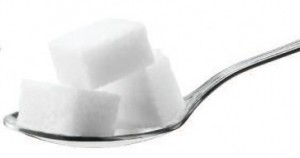 Sugars and sweetened foods may be eaten in moderation by people with diabetes. Their effect on blood glucose levels will vary, because not all sweeteners affect blood sugar in the same way. The following tables provide information that will help you understand the differences. And your dietitian or diabetes educator can help you plan how to fit sweeteners and sweetened foods into your meal plan.
Sugars and sweetened foods may be eaten in moderation by people with diabetes. Their effect on blood glucose levels will vary, because not all sweeteners affect blood sugar in the same way. The following tables provide information that will help you understand the differences. And your dietitian or diabetes educator can help you plan how to fit sweeteners and sweetened foods into your meal plan.
Sweeteners that increase blood glucose levels
| Sweetener | Forms & uses | Things you should know |
| Sugars, examples include: agave syrup, barley malt, brown rice syrup, brown sugar, corn syrup, dextrose, fructose, fruit juice concentrates, glucose, high fructose corn syrup, honey, icing sugar, invert sugar, lactose, maltodextrins, maltose, maple syrup, molasses, sucrose, and white sugar | • Used to sweeten foods and beverages• May be found in medications | • Sugars are carbohydrates that can affect your blood glucose, weight and blood fats.• For people with diabetes, there is no advantage to using one type of sugar over another.• Sugars may be eaten in moderation by people with diabetes, up to 10% of daily calories. Talk to your dietitian or certified diabetes educator about how sugars can fit into your meal plan. |
| Sugar alcohols & polydextrosehydrogenated starch hydrolysates (HSH), isomalt lactitol, maltitol, mannitol, palatinit, polydextrose, polyol syrups, polyols, sorbitol, and xylitol | • Used to sweeten foods labelled “sugar free” or “no added sugar”• May be found in cough and cold syrups and other liquid medications (e.g., antacids) | • Sugar alcohols are neither sugars nor alcohols. Small amounts are found naturally in fruits and vegetables. They can also be manufactured.• They are only partly absorbed by your body, so they have fewer calories and a smaller effect on your blood glucose than sugar.• Check product labels for the number of grams of sugar alcohols per serving. If you eat more than 10 grams of sugar alcohols a day, you may experience side effects such as gas, bloating, or diarrhea.• Talk to your dietitian or certified diabetes educator if you are carbohydrate counting and want to use foods sweetened with sugar alcohols. |
What you should know about sweeteners
Health Canada has approved the following sweeteners as safe if taken in amounts up to the acceptable daily intake (ADI). These sweeteners may also be used in medications. Please read all labels carefully every time you use a product, because ingredients may change and different products with the same brand name may contain different sweeteners. What you choose depends on your taste and how you will be using the sweetener. Your dietitian or certified diabetes educator can help you make wise choices.
| Sweetener | Common/Brand name | Forms & uses | Things you should know |
| Acesulfame Potassium AceK | Not available for purchase as a single ingredient | Added to packaged foods and beverages only by food manufacturers | • Safe in pregnancy*• ADI=15 mg/kg body weight per day (For example, a 68 kg [150 lb.] person could have 1020 mg of AceK per day.) One can of diet pop contains about 42 mg of AceK. |
| Aspartame | • Equal®• NutraSweet®• Private label brands | • Available in packets, tablets, and granulated (spoonable) form• Added to drinks, yogurts, cereals, low calorie desserts, chewing gum, and many other foods• Flavour may change when heated | • Safe in pregnancy*• ADI=40 mg/kg body weight per day (For example, a 68 kg [150 lb.] person could safely have 2720 mg of aspartame per day.) One can of diet pop may contain up to 200 mg of aspartame. |
| Cyclamate | • Sucaryl®• Sugar Twin®• Sweet’N Low®• Private label brands | • Available in packets, tablets, liquid, and granulated(spoonable) form• Not allowed to be added to packaged foods and beverages• Flavour may change when heated | • Avoid when pregnant• ADI=11 mg/kg body weight per day (For example, a 68 kg [150 lb.]) person could have 748 mg of cyclamate per day.) One packet of Sugar Twin® contains 264 mg of cyclamate. |
| Saccharin | Hermesetas® | • Available as tablets• Not allowed to be added to packaged foods and beverages | • Safe in pregnancy*• ADI=5 mg/kg body weight per day (For example, a 68 kg [150 lb.] person could have 340 mg of saccharin per day.) One tablet of Hermesetas® contains 12 mg of saccharin.• Available only in pharmacies |
| Stevia | • Krisda®• Pure Via®• Truvia®• SweetLeaf® Stevia | • Available in packets and granulated (spoonable) form• Added to packaged foods and beverages• Can be used for cooking and baking | • Safe in pregnancy*• ADI=4 mg/kg body weight per day. (For example, a 68 kg [150 lb.] person could have 272 mg of stevia per day.) One steviasweetened beverage has 17 mg of stevia. |
| Sucralose | Splenda® | • Available in packets and granulated (spoonable) form• Added to packaged foods and beverages• Can be used for cooking and baking | • Safe in pregnancy*• ADI=9 mg/kg body weight per day (For example, a 68 kg [150 lb.] person could have 612 mg of sucralose per day.) One packet of Splenda® contains 12 mg of sucralose. |
*For nutritional reasons, pregnant women should not consume excessive amounts of products containing artificial sweeteners, because these foods might replace more nutritious foods.
Tables adapted from the Canadian Diabetes Association table on sugars and sweeteners

